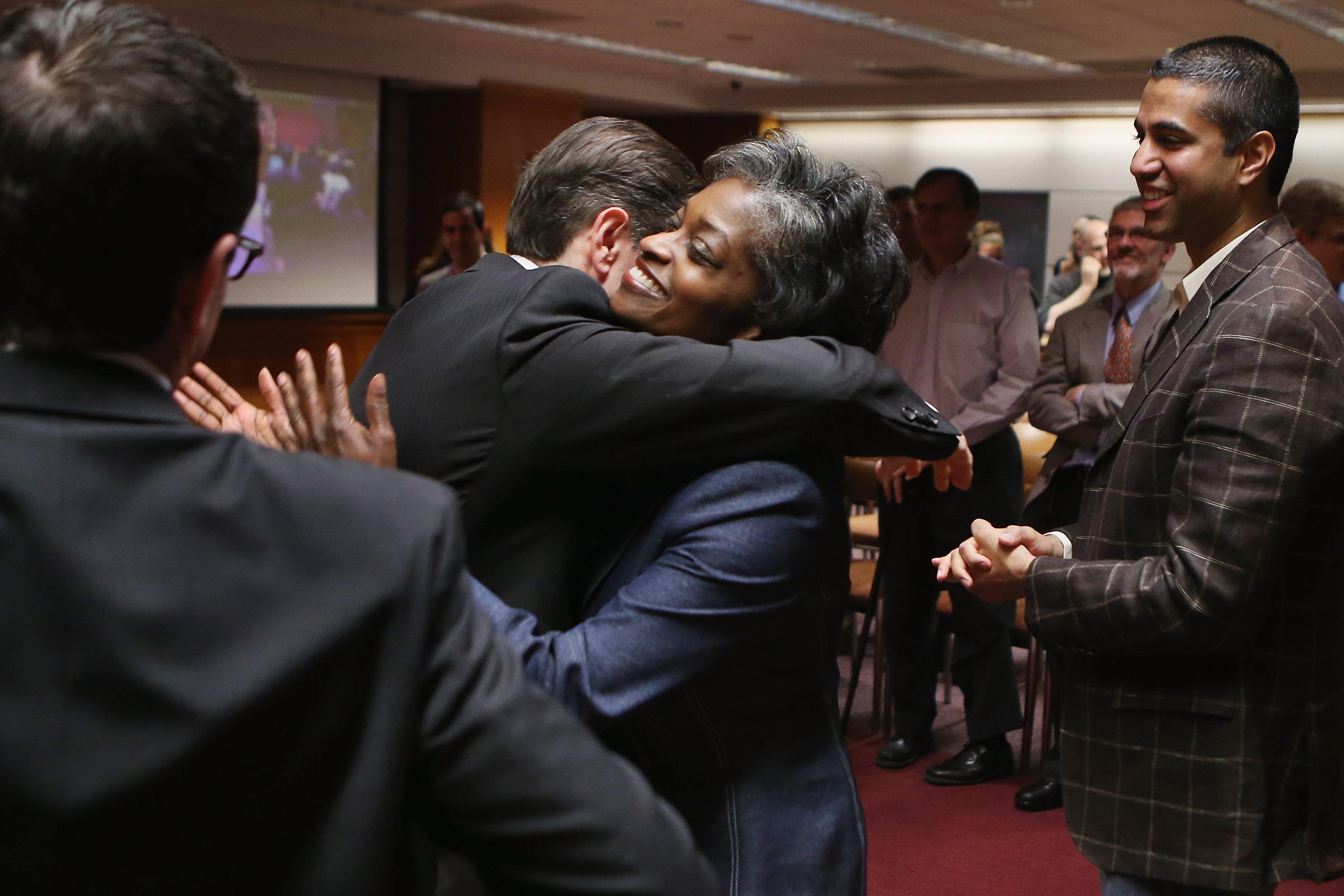If you ever doubted that an op-ed can change the world—a terrifying thought, to lose that power—get to know Ajit Pai. Appointed to the FCC in 2012, one of the Republicans nominated by Barack Obama, Pai grew disturbed by the organization’s year-old Multi-Market Study of Critical Information Needs. As described by Pai, the project would snoop around newsrooms, making sure they adhered to political correctness though a series of codewords—“eight categories of ‘critical information’ such as the ‘environment’ and ‘economic opportunities.’ ” Anyone could tell what this was: the return of the Fairness Doctrine.
“Should all stations follow MSNBC’s example,” snarked Pai, “and cut away from a discussion with a former congresswoman about the National Security Agency’s collection of phone records to offer live coverage of Justin Bieber’s bond hearing?”
The op-ed got results.
Look forward to appearing tonight on @gretawire’s “On the Record” to discuss concerns with FCC’s media study. Op-ed: http://t.co/j95NuUVcBQ
— Ajit Pai (@AjitPaiFCC) February 20, 2014
Look forward to talking w/ you! MT @jaketapper here’s the oped from FCC Cmsnr Pai that people are talking about – http://t.co/z7vQhUvVUI …
— Ajit Pai (@AjitPaiFCC) February 21, 2014
Eleven days after the op-ed ran, and the same day as Pai’s interview on CNN, the FCC suspended the study while issuing a statement defending the theory behind it. A week later, the FCC officially announced that it wouldn’t even try to conduct the study. Good timing: By then, Fox News was reporting on how the journalism schools received funding from George Soros. What more needed to be said? The devil’s hands were all over this thing.
In isolation, the campaign to stop the FCC study would be interesting. But it wasn’t isolated. At the same time that conservatives were hammering the study, they were soliciting public comments against proposed IRS rules to limit the activity of nonprofits in the 60 days before elections. FreedomWorks, Ron Paul’s Campaign for Liberty, and multiple members of Congress pressed their activists (or constituents) to add public comments. The result: almost 140,000 public comments, most of which will surely oppose the rule.
